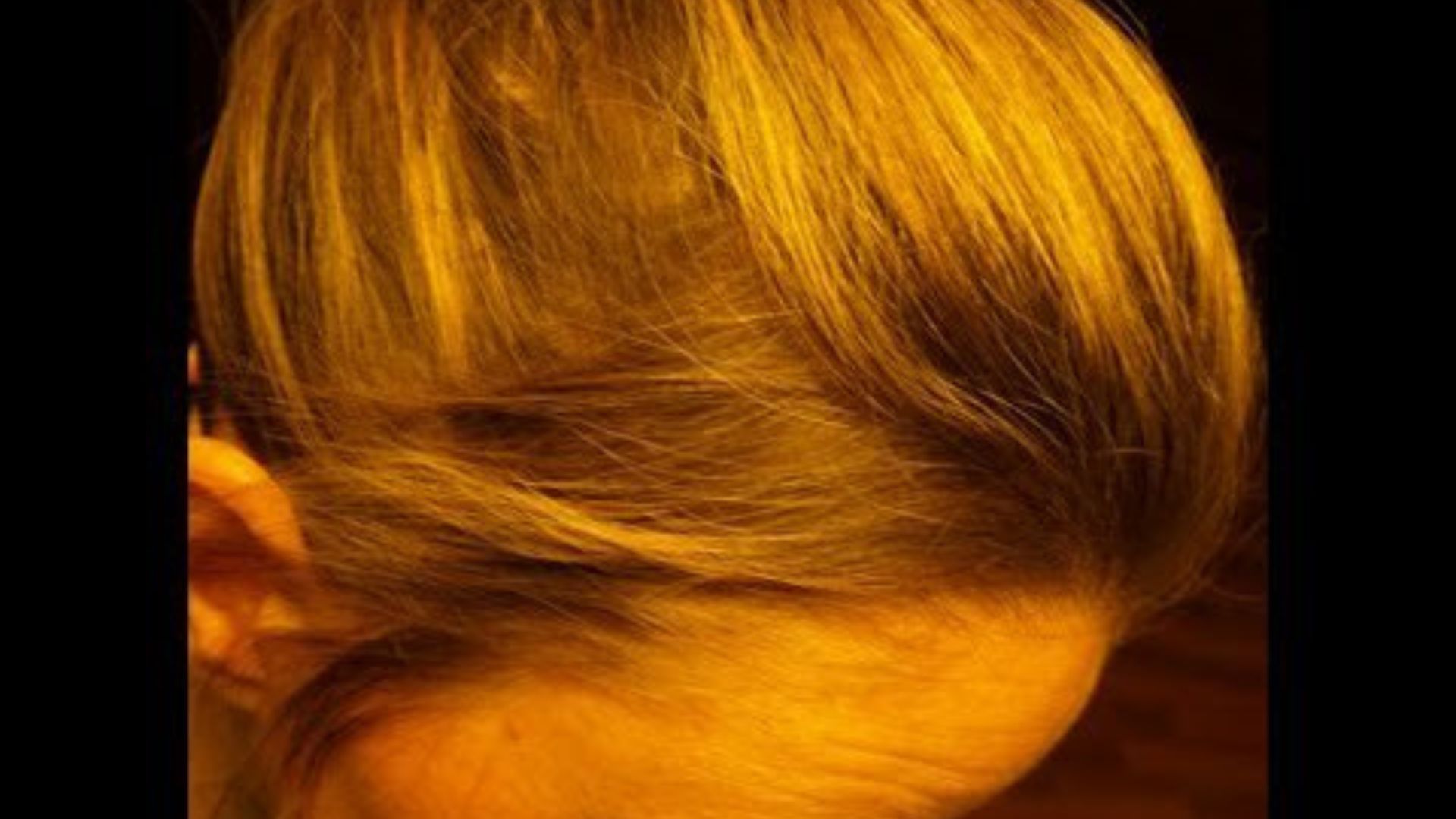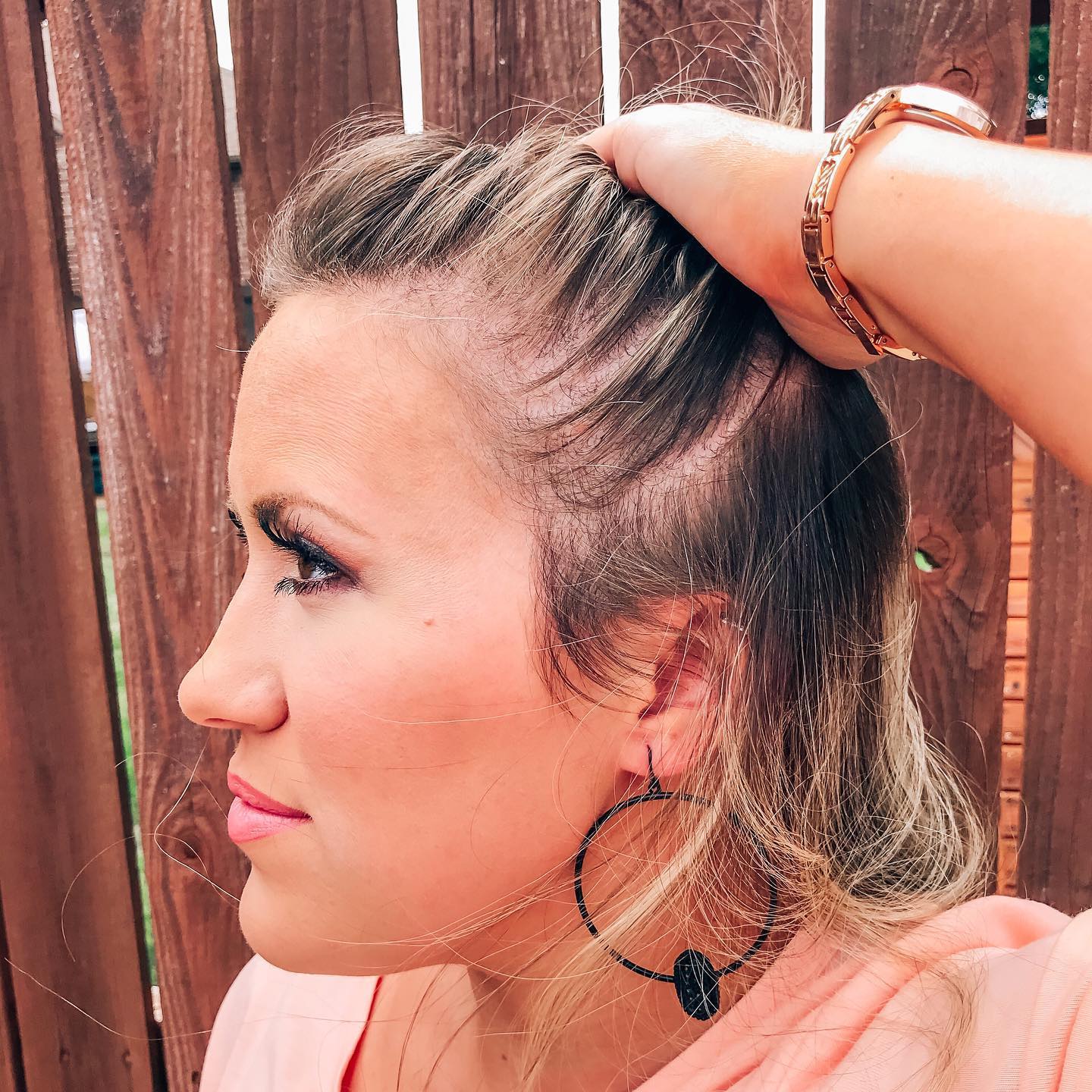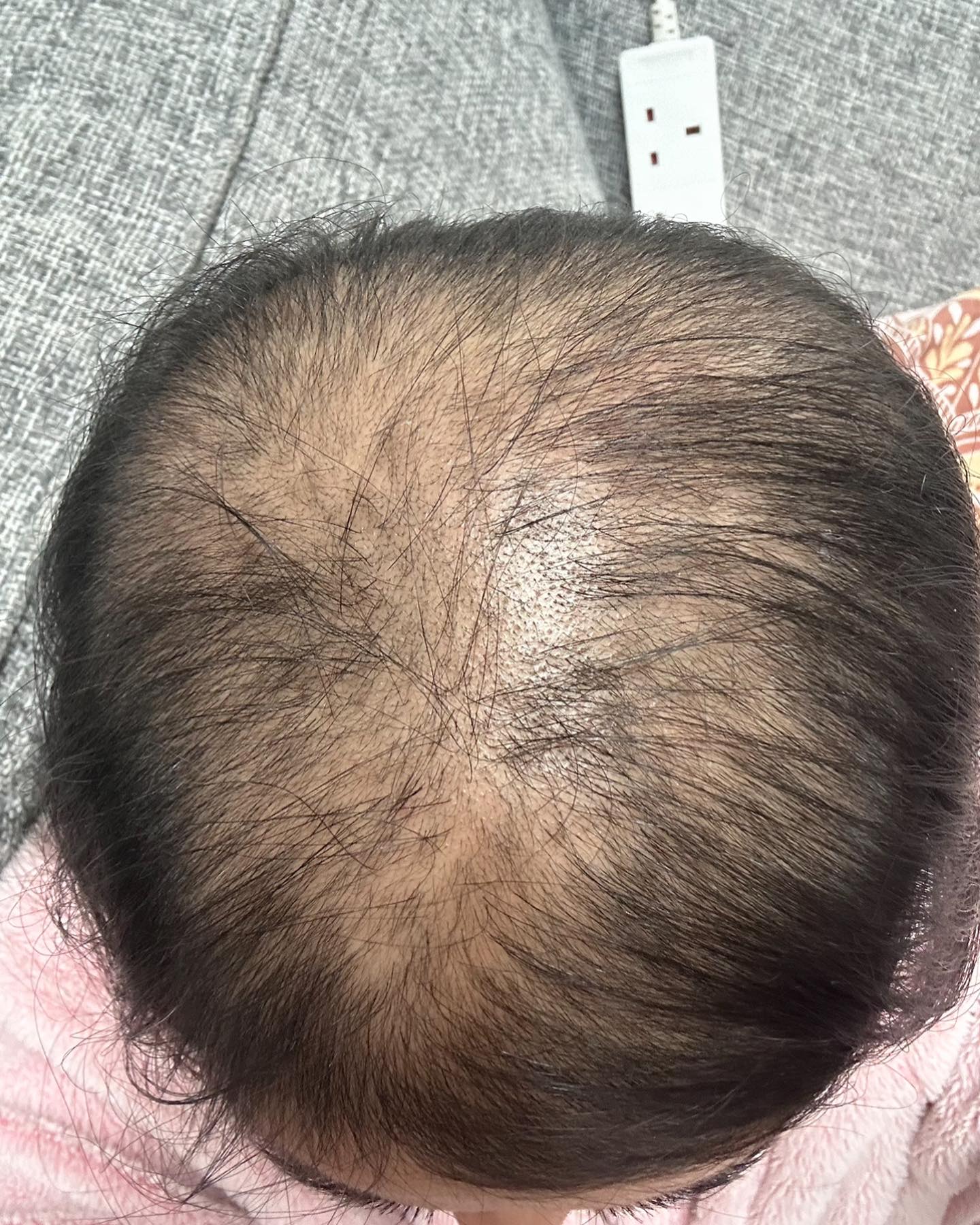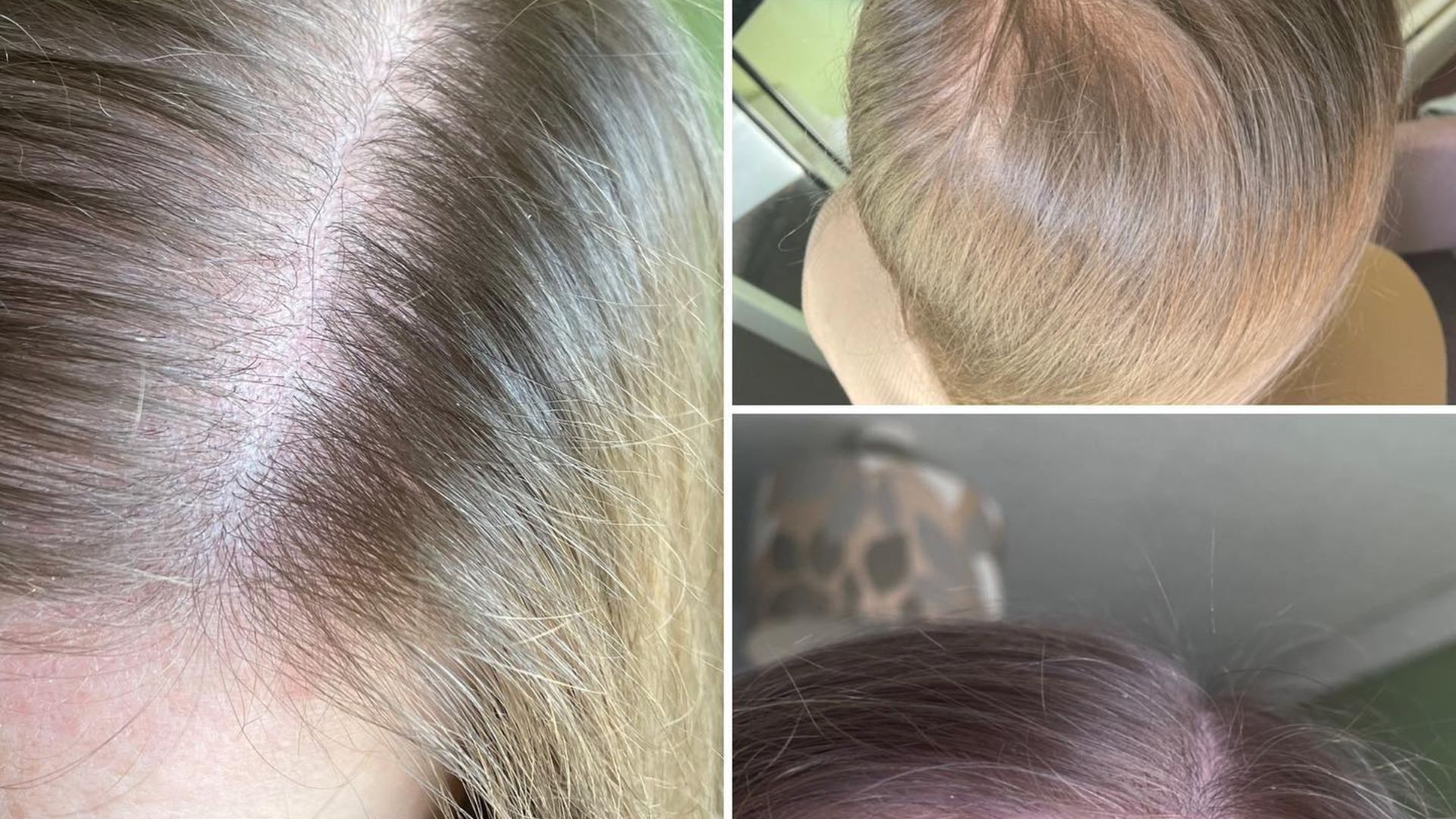Mirena Hair Loss: Causes, Signs & Solutions

Mirena is a hormonal intrauterine device (IUD) used for long-term birth control. It releases a low dose of the progestin hormone levonorgestrel to prevent pregnancy. Mirena is a popular choice for women seeking a reliable and convenient birth control method.
However, one potential side effect of Mirena is hair loss. This can be a concern for some women considering the IUD. This section will explore the connection between Mirena and hair loss, its impact on users, and what you should know.
Also Read: Yoga Asanas That Promote Faster Hair Growth
Does Mirena Cause Hair Loss?
The link between Mirena and hair loss is not entirely clear, but there is some evidence suggesting a possible connection. Here’s a breakdown of what we know:
Mirena Label: The official product information for Mirena lists hair loss (alopecia) as a side effect. Studies during clinical trials reported hair loss in less than 5% of participants using Mirena.
Limited Research: While hair loss is listed as a side effect, there haven’t been many extensive studies directly investigating the cause-and-effect relationship between Mirena and hair loss.
Possible Mechanism: The theory behind the connection revolves around hormonal changes. Mirena releases levonorgestrel, a progestin hormone. Some experts believe this hormone might influence hair growth patterns in women predisposed to female pattern hair loss. This predisposition can be genetic or due to other factors.
Severity and Reversibility: Hair loss associated with Mirena is usually considered mild to moderate thinning. If it occurs, it’s important to note that hair loss isn’t always permanent. In some cases, hair growth may return to normal after Mirena removal.
It’s important to remember that hair loss can have various causes besides Mirena. Stress, certain medications, and underlying health conditions can also contribute to hair thinning.
How Common is Hair Loss with Mirena?
The reported prevalence of hair loss with Mirena varies depending on the source. Here’s a breakdown of some key data points:
Mirena Label: The official label lists hair loss in less than 5% of users based on clinical trials.
Finnish Study: One large Finnish study reported a higher rate, with nearly 16% of participants experiencing hair loss after Mirena insertion. However, it’s important to note that this study didn’t necessarily rule out other potential causes for hair loss in those participants.
New Zealand Data Review: A review of post-marketing data in New Zealand found hair loss reported in less than 1% of Mirena users. This data aligns more closely with the Mirena label and suggests a potentially lower prevalence than the Finnish study. Interestingly, researchers in this review noted that in some cases where other causes were ruled out, the timeframe of hair loss following IUD insertion suggested a possible link to Mirena.
- While the exact numbers vary, hair loss appears to be an uncommon side effect of Mirena.
- The reported prevalence ranges from less than 1% to potentially closer to 5%.
- More research is needed to definitively establish the link between Mirena and hair loss.
Signs and Symptoms of Mirena-Related Hair Loss

Mirena-related hair loss, if it occurs, typically manifests as gradual thinning rather than sudden patches of baldness. Here are some signs and symptoms to watch for:
- Increased Hair Shedding: You might notice more hair than usual coming out while brushing, showering, or styling your hair.
- Overall Thinning: Hair may appear less voluminous overall, with a decrease in density across the scalp.
- Receding Hairline: In some cases, particularly for women with a genetic predisposition, Mirena might contribute to a slightly receding hairline.
However, it’s important to consider other potential causes of hair loss before attributing it solely to Mirena. Here’s what to keep in mind:
- Normal Hair Shedding: We naturally lose hair daily (around 50-100 strands). Shedding that doesn’t lead to noticeable thinning is usually nothing to worry about.
- Stress: Stressful events can trigger temporary hair loss.
- Diet and Nutrition: Deficiencies in certain vitamins and minerals can contribute to hair loss.
- Underlying Medical Conditions: Certain medical conditions like thyroid problems or scalp disorders can also cause hair loss.
If you’re experiencing hair loss and suspect it might be linked to Mirena, it’s crucial to consult your doctor. They can help diagnose the cause and determine the best course of action. This might involve discussing alternative birth control methods or monitoring your hair loss for a period to see if it stabilizes.
Also Read: Basic Tips for Winter Skin Care
Can Mirena Hair Loss be Reversed?

The good news is that hair loss associated with Mirena is often reversible. Here’s what you should know:
- Mirena Removal: In some cases, simply removing the Mirena IUD can lead to hair regrowth. Studies suggest that up to two-thirds of women who experience hair loss with Mirena may see improvement after removal. However, this process can take several months, as hair growth has its natural cycle.
- Time and Patience: Hair growth is a slow process. It can take anywhere from 6 to 12 months to see noticeable improvement after addressing the cause of hair loss.
- Addressing Underlying Deficiencies: If your doctor identifies any vitamin or mineral deficiencies contributing to hair loss, they may recommend supplements to support healthy hair growth.
Here are some additional strategies that may be helpful, although research for their effectiveness specifically with Mirena-related hair loss is limited:
- Scalp Massage: Scalp massage can improve circulation to the scalp, potentially promoting hair growth.
- Minoxidil: This topical medication is FDA-approved for hair loss in women. While not a guaranteed solution, it may help stimulate hair follicles and promote new growth.
- Consulting a Doctor: It’s crucial to consult your doctor before starting any new treatments for hair loss, including over-the-counter medications or supplements. They can help determine the best course of action based on your specific situation.
- Alternative Birth Control: If Mirena removal is a consideration, discuss alternative birth control methods with your doctor to ensure you have reliable contraception.
Remember, while Mirena can be a great birth control option for many women, hair loss is a potential side effect. If you experience hair loss and suspect Mirena might be the cause, talk to your doctor. They can help you explore the best course of action and address any underlying concerns.
Alternatives to Mirena That Don’t Cause Hair Loss
If you’re concerned about hair loss associated with Mirena, there are several alternative birth control methods with a potentially lower risk. Here are some options to consider:
- Non-Hormonal IUDs: Copper IUDs, like ParaGard, are a highly effective form of birth control that don’t contain hormones. They work by preventing sperm from reaching the egg. While copper IUDs can cause heavier periods or cramps in some women, they are unlikely to contribute to hair loss.
- Progestin-Only Pills: Birth control pills containing only progestin, like the minipill, might be a good option. Progestin works differently than the combination of estrogen and progestin found in most birth control pills. While some progestin-only pills can cause hair loss, some studies suggest it may be less common than with combination pills. Discussing this option with your doctor to find the right progestin-only pill for you is important.
- The Implant: Nexplanon is a long-acting, implantable birth control method that releases progestin only. Similar to progestin-only pills, it might carry a lower risk of hair loss compared to combination pills.
- The Ring: Nuvaring is a vaginal ring that releases both estrogen and progestin. While it contains hormones, the lower dose delivered vaginally may be less likely to impact hair growth compared to some oral contraceptives.
- Effectiveness: It’s important to consider the effectiveness of each method. Copper IUDs and progestin-only options are typically less effective compared to hormonal IUDs and combination birth control pills.
- Side Effects: Every birth control method has potential side effects. Discuss all possibilities with your doctor to find the best option for your individual needs and health history.
- Consultation with Doctor: Talking to your doctor is crucial to determine the best alternative for you. They can assess your risk factors for hair loss, discuss your medical history, and recommend birth control options with a lower risk of hair loss based on your specific situation.
Also Read: Healthy Diet for Kids That Boosts Self-Esteem
In Crux
Mirena is a popular birth control option, but hair loss is a potential side effect. While research is ongoing, evidence suggests it’s an uncommon occurrence, affecting less than 5% of users according to the Mirena label.
This blog explored the connection between Mirena and hair loss, including its signs, potential for reversal, and alternative birth control methods.
Choosing the right birth control is a personal decision. If you’re concerned about hair loss, discuss your options with your doctor. They can help you weigh the risks and benefits of different methods and find the best solution for your individual needs and health history.
Remember, informed decision-making is key to finding the birth control that works best for you.
How much did you like Our detailed Mirena Hair Loss: Causes, Signs & Solutions? Please share your view in the comment box. Also, please share these Blogs with your friends on social media.
Recommended











